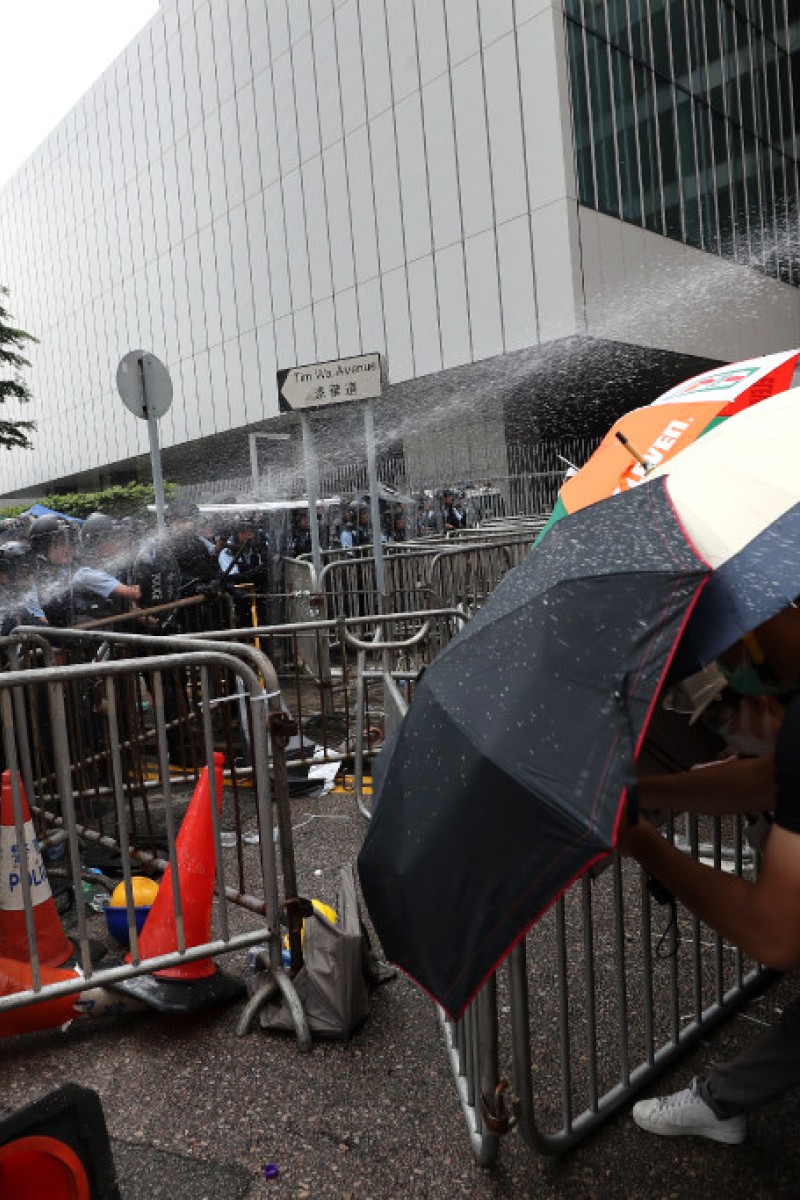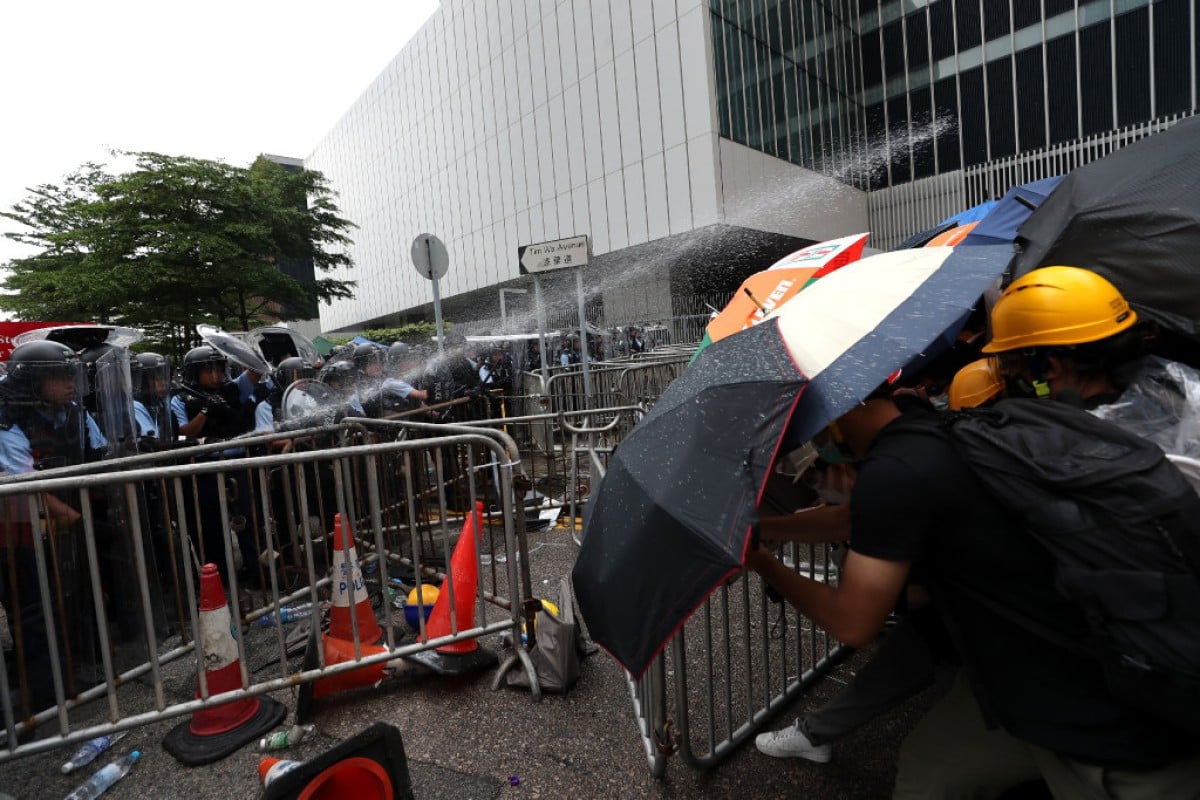
Hong Kong extradition law: Police chief clarifies labelling of June 12 protests as a 'riot'
As police switch tactics to cool tensions, Stephen Lo Wai-chung explained only those who had attacked officers with metal rods and bricks would be accused of rioting
 The police chief clarified that only those who attacked officers with bricks and rods were accused of rioting.
The police chief clarified that only those who attacked officers with bricks and rods were accused of rioting.A day after a historic mass rally against the government’s extradition bill and use of force against protesters opposing it, Hong Kong’s police commissioner rolled back his official categorisation of last Wednesday’s clashes as a “riot”, applying it only to specifically violent incidents.
Stephen Lo Wai-chung last night clarified that only those who had attacked frontline officers with metal rods and bricks would be accused of rioting, while those who were not involved in such violence would not have to worry about riot-related charges.
“I did not mean that all those taking part in the protests that day were taking part in rioting,” Lo said. “And they need not worry that they could have committed riot offences.”
One of the major demands aired during Sunday’s rally, attended by nearly 2 million according to organisers, was for the city’s leader to retract the riot label, with marchers expressing concern that it would lead to harsh punishment for young protesters.
With Lo initially declaring that all clashes outside the Legislative Council after 3.30pm on last Wednesday constituted a riot, police have since arrested 32 protesters – including five for rioting and 10 for violent crimes.
While a source said the remaining 17 protesters arrested for lesser offences were expected to be released, Lo insisted that the core violence would continue to be treated as rioting.
During Sunday's march, which nearly 2 million people attended, police presence was kept to a minimum. Although 5,000 officers were deployed in two shifts on both Sunday marches and Wednesday's protest, most officers were kept on standby indoors for the latest march.
Officers on June 16 did not stop protesters from spilling onto roads adjacent to the agreed march route, of from occupying roads near Legco after the rally ended in the evening.
Early on Monday morning, only about 80 officers were sent to appeal to hundreds of demonstrators occupying Harcourt Road to leave. They carried only batons and pepper spray.
A senior police source said the change of tactics was to avoid unwanted confrontations or clashes, while the use of force was only necessary if the protests turned violent.
You might also like:
Hong Kong Journalist Association files complaint of police violence against media
